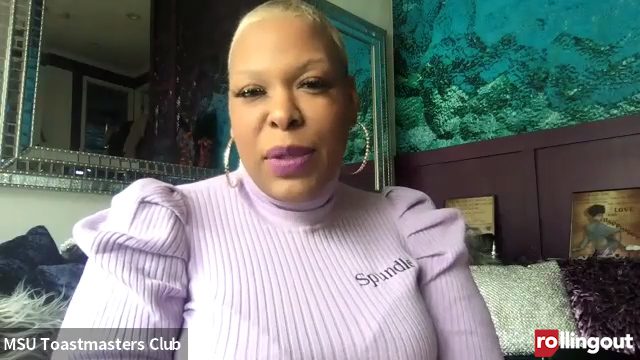Shawna Stepp-Jones had a unique path to establishing Spundle, the product that dries wigs and bundles within 15 minutes. The Baltimore native has always been interested in STEM subjects and topics, and is now using that knowledge in her professional pursuits.
Recently, Stepp-Jones spoke to rolling out about the path to developing her product as well as her educational background.
What was your introduction to the tech world?
In Baltimore, I went through a program called MESA. Mathematics, engineering, science, achievement, and at that time it was a statewide push to get more of us involved in STEM. So that was my first introduction to tech.
Then, I went to Morgan State University, shout out to the best engineering program that produces the most brilliant Black engineers. So I went to Morgan, and I pursued electrical engineering. From there is where I really got my footing in tech because it was a place where they really celebrated us for pursuing Black excellence and greatness. I love how it felt, to be the only female in some of my classes or one of very few females, and I’ve always loved the idea of being a problem solver and getting paid to think, to solve problems.
How did you fund your business at the start of it?
How I funded my business came down to me getting some skin in the game, literally. I was working at the U.S. Patent and Trademark Office as a patent examiner. When I first came across the idea in 2016, I spent some time pitching investors, and to no avail.
While working at the Patent Office, you cannot file for a patent and be a patent examiner. In fact, you have to leave the office, and you have to wait one year before you’re eligible. I felt like someone would be able to take this idea after I had already started going out in the market talking about it, so I had to take matters into my own hand, and I became a surrogate in 2019. I gave birth to twins just to get my first five figures to put together a team and get my concept built. To be able to position myself to leave the office. So definitely not your traditional way to capital, and it really speaks to the hurdles we as Black women in general, and who I’m speaking for, have to go through. We make up almost 2% of the companies that are founded by Black females who get VC funding. Out of all the capital deployed, only less than 2% of us have the opportunity to be able to be in a position to even innovate. My journey has definitely been a journey, for sure, and it’s been a success ever since, though. I’ve been able to leverage that particular transaction to grow my business.



